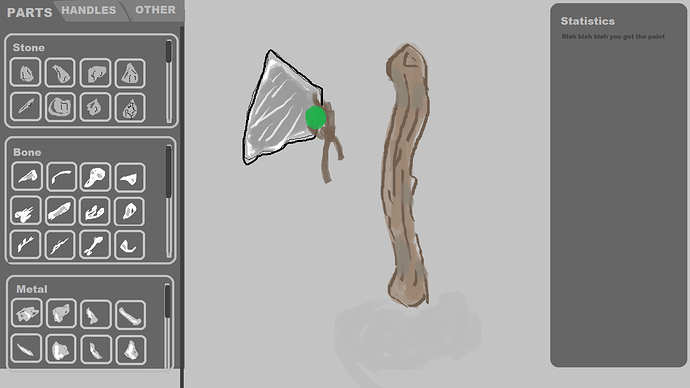There was quite a lot of discussion about the tech editor lately, mainly here, but there is still a lot of unanswered questions.
What is the editor going to look like?
Now, I’m not talking about the GUI, the visuals or anything. What I mean is what things are going to be there to our disposal. Is there going to be a selection of materials and shapes that you have to further modify by modeling? Because, well. Imagine you want to design a rocket engine. I think the editor should feel fun and challenging, while making sense AND while not requiring you to have a degree in rocket engineering and 5 years of practice with Blender. Which might be quite a challenge and I have not seen anyone address it before. Maybe with things that have interior maybe we can see and modify the cross section of the thing displayed as a blueprint? Meaning you would be able to switch views between 3D and a blueprint cross section. But still.
So basically the editor should be easy to use, while not oversimplifying things - requiring you to know at least the most basic basics of the given thing (e.g. that a rocket engine has a fuel tank, an oxygen tank and some pumps that mix the two), but not requiring an expertise. This will be incredibly hard to balance and I’d like to hear your thoughts on that.
How will we distinguish what does what?
Okay, now an approach from the other side - we design something, it has let’s say two chambers, some pipes and so on. How will the editor say “Oh yeah, that’s a rocket engine!”, or “Oh yeah, that’s a water pump!”, or even “That’s definitely a weirdly shaped hookah!”. This, also, will be incredibly hard to achieve. Maybe we can add certain labels to certain parts of the technology? Such as labeling a hollow space with the tag “container”, or parts of the surface grabable (hell that’s a weird word) by the species as handles, et cetera. Or maybe there could be “slap-on” parts for the most fundamental components such as “container”, “pipe”, whose dimensions you can change, so that we don’t have to label them?
And maybe once the technology meets certain criteria, such as “Does it have two containers, one that’s ought to be filled with oxygen and one ought to be filled with fuel? Does it have pipes from these two containers that meet at some point?” It will be labeled as the technology (a rocket engine in this case). This system, however, should be easy to understand, yet not too trivial such as “Slap these two things on the screen and you have a particle collider!” and not exploitable by meeting all of the criteria despite the technology obviously being not functional. Again, this will be insanely complicated to make right. Any ideas?
Scaling
How will scaling work? There is basically no significant difference between a hatchet and a war axe. Or between a firework and a space rocket (okay, the materials, but you get the point). How will we make sure that the thing is just the right size? Will there be a scaling slider? How will we insure that it is portrayed realistically? Since making a 2cm dagger would be easy (but pretty damn useless), but making a 2cm supercomputer might not even be possible. How to ensure this? Also, as you develop, maybe the object becomes more and more scalable. Not too many decades ago computer were the size of a room and were able to do basic computation, but now they can fit in your pocket and do things our ancestors would never even dream of (okay, I’m talking mostly about porn). How will this be dealt with? Since, as I said earlier, each technology is differently difficult to make in different sizes.
Please, tell me your thoughts on the Tech Editor and how it should work, because I cannot quite figure out how it would function in such a way that’s not overly complicated and requires a degree in every single field of engineering, but neither is a boring minigame similar to the games where you combine elements to get something new or “Slap this on this” OR just a tech tree where you unlock things.
PS: But someone should definitely make at least a mod (if not a difficulty setting) for the tech editor, where you do actually need a degree in the certain field to make it work. Might be a fun challenge for people who know something about this kind of stuff or an interesting learning experience. This should definitely not be the default difficulty setting, maybe not even in the non-modded game as an option, but as a mod that would definitely be something I would love to try.
